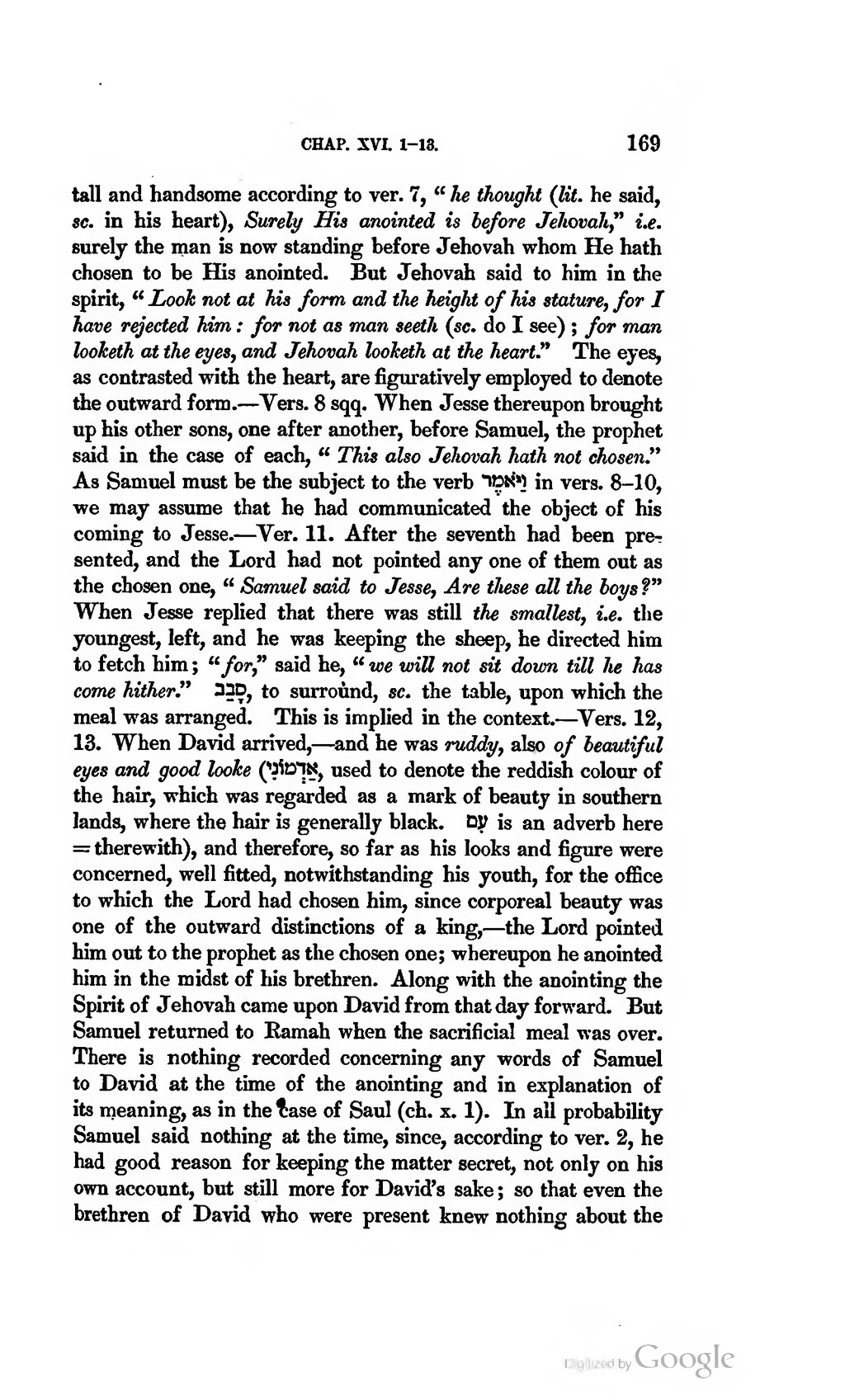tall and handsome according to 1Sa 16:7, “he thought (lit. he said, sc., in his heart), Surely His anointed is before Jehovah,” i.e., surely the man is now standing before Jehovah whom He hath chosen to be His anointed. But Jehovah said to him in the spirit, “Look not at his form and the height of his stature, for I have rejected him: for not as man seeth (sc., do I see); for man looketh at the eyes, and Jehovah looketh at the heart.” The eyes, as contrasted with the heart, are figuratively employed to denote the outward form.
Verses 8-10
When Jesse thereupon brought up his other sons, one after another, before Samuel, the prophet said in the case of each, “This also Jehovah hath not chosen.” As Samuel must be the subject to the verb ויּאמר in 1Sa 16:8-10, we may assume that he had communicated the object of his coming to Jesse.
Verse 11
After the seventh had been presented, and the Lord had not pointed nay one of them out as the chosen one, “Samuel said to Jesse, Are these all the boys?” When Jesse replied that there was still the smallest, i.e., the youngest, left, and he was keeping the sheep, he directed him to fetch him; “for,” said he, “we will not sit down till he has come hither,” סבב, to surround, sc., the table, upon which the meal was arranged. This is implied in the context.
Verses 12-13
When David arrived, - and he was ruddy, also of beautiful eyes and good looks (אדמוני, used to denote the reddish colour of the hair, which was regarded as a mark of beauty in southern lands, where the hair is generally black. עם is an adverb here = therewith), and therefore, so far as his looks and figure were concerned, well fitted, notwithstanding his youth, for the office to which the Lord had chosen him, since corporeal beauty was one of the outward distinctions of a king, - the Lord pointed him out to the prophet as the chosen one; whereupon he anointed him in the midst of his brethren. Along with the anointing the Spirit of Jehovah came upon David from that day forward. But Samuel returned to Ramah when the sacrificial meal was over. There is nothing recorded concerning any words of Samuel to David at the time of the anointing and in explanation of its meaning, as in the case of Saul (1Sa 10:1). In all probability Samuel said nothing at the time, since, according to 1Sa 16:2, he had good reason for keeping the matter secret, not only on his own account, but still more for David's sake; so that even the brethren of David who were present knew nothing about the
